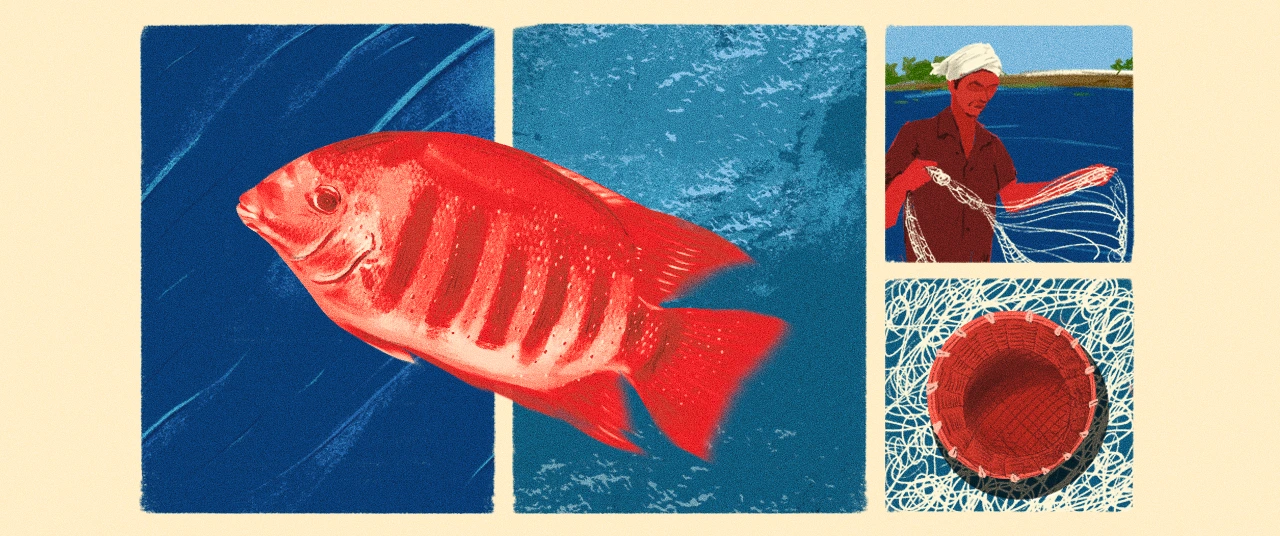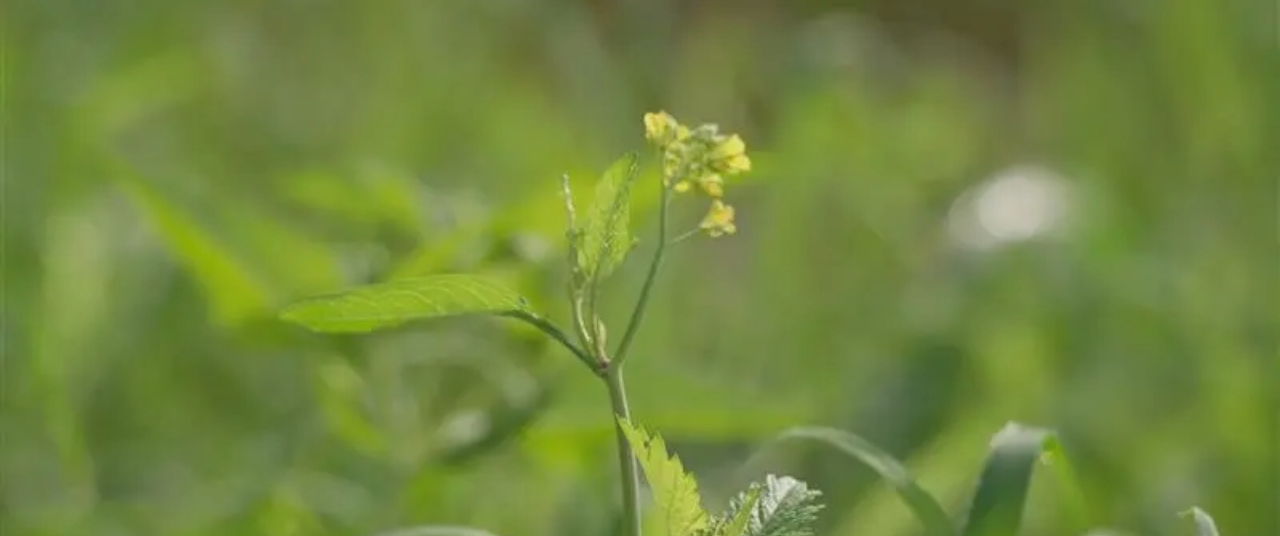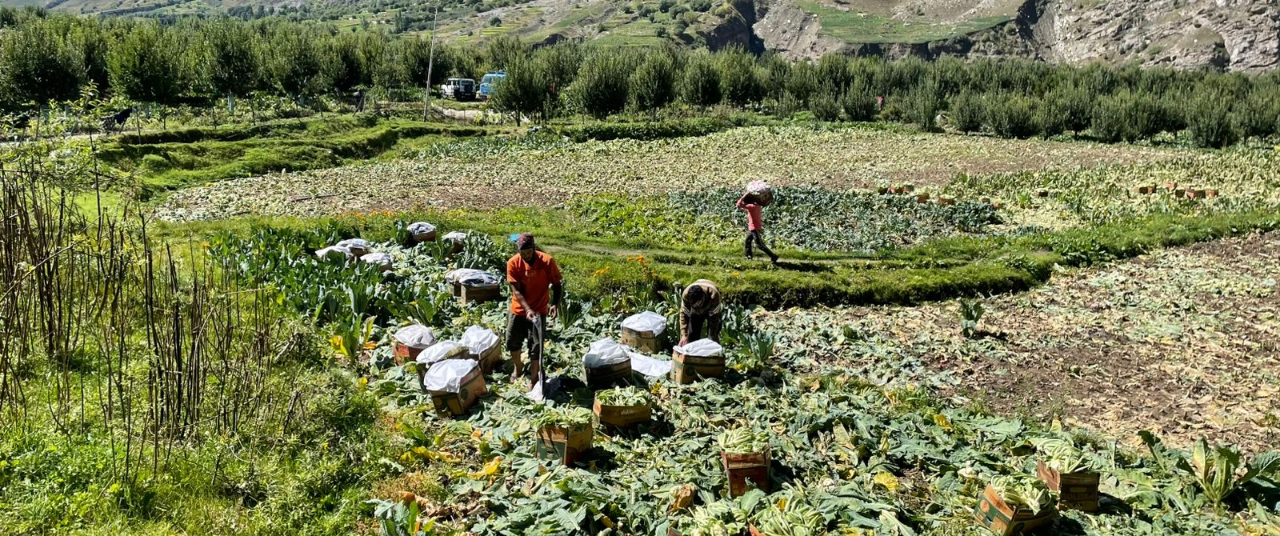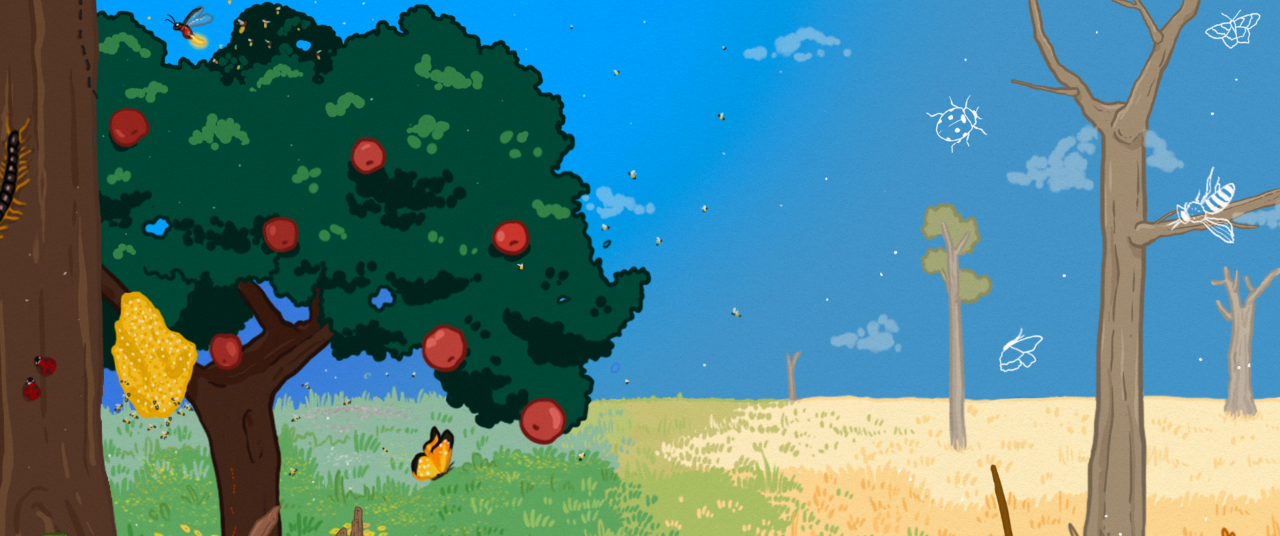How TapCo is saving rice varieties from extinction in Wayanad






The second International Year of Rice in 2004, has had its impact on South India’s Wayanad too. The debates kicked off by it, gradually paved the way for forming an agri-producer company for traditional paddy seed conservation in Wayanad, a northern district of Kerala, that has metamorphosed farming in the region for the last seven years.
The Food and Agriculture Organisation declared 2004 as the International Year of Rice, purportedly in response to a Swiss agri-chemical company's interest to patent rice genome. This prompted the launch of India's Save Our Rice (SOR) campaign.
The campaign, led by Thanal NGO in Kochi, Kerala, aimed to protect and conserve the ecosystems, the culture, diversity, and traditional wisdom related to rice. Considering that rice is the main food crop in Asia and feeds half the global population, this campaign was significant. In keeping with these objectives, Thirunelly Agri Producer Company (TAPCo) was gradually formed in Wayanad, Kerala.
Founded in 2018 by a group of farmers, experts, and advocates of sustainable farming the primary objective was to conserve traditional paddy seed varieties by providing a fair price to the farmers. TAPCo was formed with 14 registered farmers and has now grown to 120 in the last seven years.
Rice on the rise
Paddy was cultivated on about 1000 acres in Wayanad last season, and TAPCo supplied seeds to most of the farmers. “In the last seven years, we distributed at least 40 tonnes of seeds going by the calculation of 40 kilograms for one acre. We distributed 15 tonnes of seeds last year. Conserved seeds have been cultivated on 1000 acres in seven years. Also, the seeds are being distributed in consortiums organised by NGOs and in government programmes,” said Rajesh Krishnan, CEO of TAPCo.
TAPCo conserves 54 rice varieties and serves as an information centre for farmers. So far, the company has conserved fifty-four varieties of rice, including Mallikuruva, Jugal, Kagga, Palthondi, Mannu Veliyan, and Kodukanni. They support 5,000 farmers with climate-resilient projects, offering weather advisories. Additionally, 120 registered farmers annually market 100 tonnes of paddy as rice.

GM goliaths
India allowed Mahyco Monsanto to legalise genetically modified cotton (Bt cotton) in 2002, sparking debates on GM crops. Advocates argued they are essential for feeding a growing, urbanising population amid climate change, while opponents claimed they prioritised multinational agrochemical and seed companies over addressing hunger.
“Questions were raised at that time on whether all the possibilities of existing models were tested, and debates and discussions were held with a focus on traditional seeds, how to conserve them, whether the conservation would be sustained through farmers only, and on genome diversity. Save our Rice campaign has already been active in Kerala,” said Krishnan.
According to Sridhar Radhakrishnan, an environmentalist and former project director of Thanal, there was a challenge on paddy seeds by international giants like Monsanto, and the Save our Rice campaign in Asia was started to fight that. “If we look back at the 1960s (the first international year of rice was in 1966), production and productivity had increased, but farmland became polluted and water depleted, in some states, paddy was cultivated in land unsuitable for it. Hence, in 2004, during the second Save our Rice campaign, a debate emerged on the need for genetically modified seeds, crop intense hybridisation, and genetic modification,” he said.
Hybridization is one of the ways of obtaining desirable characters into crop varieties and is done to produce hybrids that are genetically combined to give desired characters in one plant.
“Also a GM crop is a serious biosafety concern, a hazardous crop, and is rejected in many nations across the world. A major type of GM Crop is Herbicide Tolerant and would promote the use of herbicides that will again destroy the soil along with other crops and eventually increase weeds due to weed resistance. All this will completely destroy the agroecosystem in which the good health of the crop and hence the welfare of the farmers are dependent,” he added.
On the contrary, traditional - local or native - seeds have developed resistance to pests and diseases, and are adapted to local agro-climatic conditions.
In the case of traditional farmers, they have domesticated, improved, and conserved thousands of crop species and varieties, using their traditional knowledge. The diversity of traditional varieties is increasingly valuable for adaptation as climate changes, particularly as modern agriculture relies on a very limited number of crops and varieties.
In addition, traditional varieties are better able to withstand environmental stress such as lack of water or nutrients. Traditional agriculture practices conserve key resources for resilience and adaptation- such as biodiversity, water, soil, and nutrients. “Save Our Rice campaign was built to promote indigenous varieties that can be cultivated without pesticide use,” said Radhakrishna.
GM crop is a serious biosafety concern, a hazardous crop, and is rejected in many nations across the world.
TAPCo’s achievements
According to Krishnan, TAPCo is the largest Farmer Producer Organisation (FPO) marketing traditional rice varieties in Kerala. He said, “On average, we cultivate, procure, and market 100 tonnes of paddy every year. We don’t believe in cultivating in a diversity block, we want farmers to cultivate in larger expansion, so that we can also market it and the market can sustain. For example, there is a traditional variety in Wayanad called Valiya Chennellu (bold red rice), which is rich in nutritional value. Its cultivation has been decreasing every year because it was not well-known in the market or among people. Its medicinal value lies in consuming it raw, making it difficult to find a market for it over the past three years. Since 2020, we have been making Aval (flattened rice) from it and marketing three tonnes of Aval per year. Now, more farmers are cultivating the Valiya Chennellu variety.”
The yield is not the same for all varieties. For example, Wayanadan Thondi, a high-yielding popular variety, has a yield of five tonnes per acre while the yield of other varieties, on average, ranges from two to 2.5 tonnes per acre.
TAPCo has expanded from introducing more seed varieties to farmers to conducting soil studies, helping farmers understand soil changes and adapt their farming methods accordingly. The soil is tested three times a year to monitor changes. TAPCo’s research and extension team regularly visits farmers' fields, providing alerts and warnings about pests and plant diseases. Additionally, TAPCo processes the paddy and works with a larger group of 5,000 farmers in Wayanad, who benefit from their research, extension services, and weather advisories.
Providing fair price
The minimum support price for paddy in the state is Rs 29.75 per kilogram. “However, we began procuring Valiya Chennellu last year at Rs 47 per kilogram, which provides an additional incentive for farmers to cultivate it. Market creation plays a crucial role in cultivation,” Krishnan said. Besides wholesale and retail marketing, TAPCo has been directly marketing to consumers in Bengaluru since 2022.

The FPO brings the major chunk of Wayanadan Thondi and Mullan Kaima, two aromatic rice varieties, into the market. Before the intervention of TAPCo, there was no market for the Mullan Kaima variety. TAPCo began selling puttu podi (rice cake powder) of Mullan Kaima last year and has sold more than a tonne till date.
The 126 farmers registered with TAPCo, from whom they procure paddy, receive additional support throughout the value chain, including research and extension services. These services bridge the gap between scientists, who work to solve agricultural problems through research, and farmers who need these solutions. Notably, the farmers do not use chemicals.
Since 2018, TAPCo has organised the Thirunelly Seed Festival in collaboration with other organisations, including Thanal. Thousands of farmers participate in this annual event. “We have done revival from an almost given-up phase, revived culture and created a source for seeds and popularised the idea. Now the State Seed Authority and Tribal Farming Department collect seeds from us,” Krishnan said.
Support system
“In India, there were more than one lakh rice varieties in 1966, which has now come down to 30,000, that too, collected by universities and institutes, not with farmers,” said Usha S, an environmentalist, coordinator of Save Our Rice Campaign and founding member of Thanal.
After the Save Our Rice Campaign was launched, Thanal began to popularise organic farming. Thanal’s partner organisation in Tamil Nadu, Create, first popularised traditional seeds and the first seed festival was organised in Thiruvarur district in Tamil Nadu in 2007.
“Seed festivals connect farmers. In Wayanad, since some of the varieties were still in use, we organised a harvest festival with tribal and non-tribal farmers and around 70 traditional farmers since 2006, eventually forming the Seed Savers Network in 2008,” she said.
In due course, Thanal facilitated TAPCo’s formation to be later disassociated from it.
The transformation
“Paddy cultivation was on 7,800 hectares in Wayanad last year and traditional seeds were used on a minimum of 1,500 acres. Along with reviving the traditional seeds, TAPCo provided farmers with a fair price more than the market price or the minimum support price,” said Krishnan.
According to Johnson OV, chairman of TAPCo, farmers' transformation from fertiliser-using varieties to traditional ones was gradual. “Traditional seeds don’t need pesticides or fertilisers and their immunity is higher than the hybrid varieties,” he said.
Johnson spoke about the gradual shift from chemical pesticides to traditional varieties during the Green Revolution, citing initial yield challenges. However, he has observed a recent move towards quality-driven farming, with a rising demand for organic rice prompting farmers to adopt traditional varieties. “We focus not only on conservation but also on raising awareness about the qualities of each variety. People are now demanding specific varieties like Black rice, Navara, Thondi, Gandhakasala, and Valiya Chennellu based on their needs and health conditions.”
TAPCo also creates paddy art with different concepts every year to attract people to the idea of paddy cultivation and traditional varieties.

Explore other topics
References
1. United Nations. (2003, October 23). UN declares 2004 International Year of Rice. UN News. https://news.un.org/en/story/2003/10/84272-un-declares-2004-international-year-rice
2. Adhirangam, P. (2011). CREATE-Adhirangam 2011: Report on the Adhirangam. Organic Farming Association of India. https://ofai.org/wp-content/uploads/2012/11/create_adhirangam_2011.pdf
3. Bayer. About Mahyco Monsanto Biotech (MMB). Bayer in India. https://www.bayer.in/en/thisisbayer/mahyco-monsanto-biotech-mmb
4. Heinrich Böll Stiftung India. GM crops in India: An overview. https://in.boell.org/en/gm-crops-india
5. Testbook. Hybridization for the process of crop improvement. https://testbook.com/question-answer/hybridization-for-the-process-of-crop-improvement--61827e41612caa2e23c3c42e
6. Othman, H., Abdul Rahim, K., Shamsuddin, Z. H., & Zakaria, Z. (2017). Factors influencing Malaysian public university students' usage of institutional repositories. https://www.sciencedirect.com/science/article/abs/pii/S0278691517303411
7. Centre of Excellence in Farm Business Management. (2021). Module 6: Session 3. Centurion University of Technology and Management. https://courseware.cutm.ac.in/wp-content/uploads/2021/01/MODULE-6-SESSION-3.pdf
8. Seetharaman, K. (2013). Clustering of micro-hydel plants: Experience of Amaranatha Agraharam village in Tamil Nadu, India. https://www.osti.gov/etdeweb/servlets/purl/22073504
9. Ganga, K. S., Dev, A., & Kalyani, N. (2017). Chennellu – resistant variety of traditional rice cultivar in Kerala against bacterial blight. https://www.journalcra.com/article/chennellu-%E2%80%93-resistant-variety-traditional-rice-cultivar-kerala-against-bacterial-blight
10. ResearchGate. (n.d.). Connection between agricultural research and extension systems.https://www.researchgate.net/figure/Connection-between-Agricultural-Research-and-Extension-Systems_fig5_315488170
11. Scroll Staff. (2021, October 26). A festival in Kerala is shining attention on climate-resilient indigenous seeds and crops. https://scroll.in/article/1045953/a-festival-in-kerala-is-shining-attention-on-climate-resilient-indigenous-seeds-and-crops










